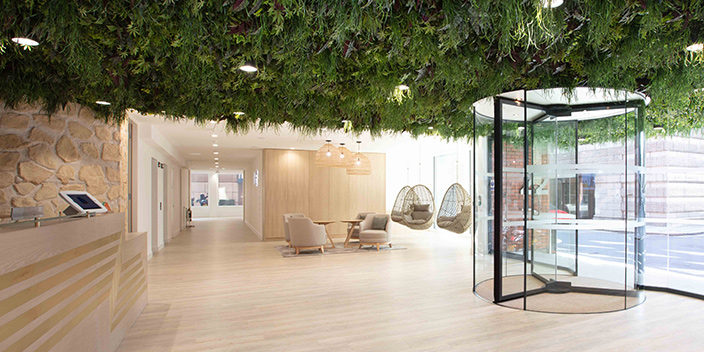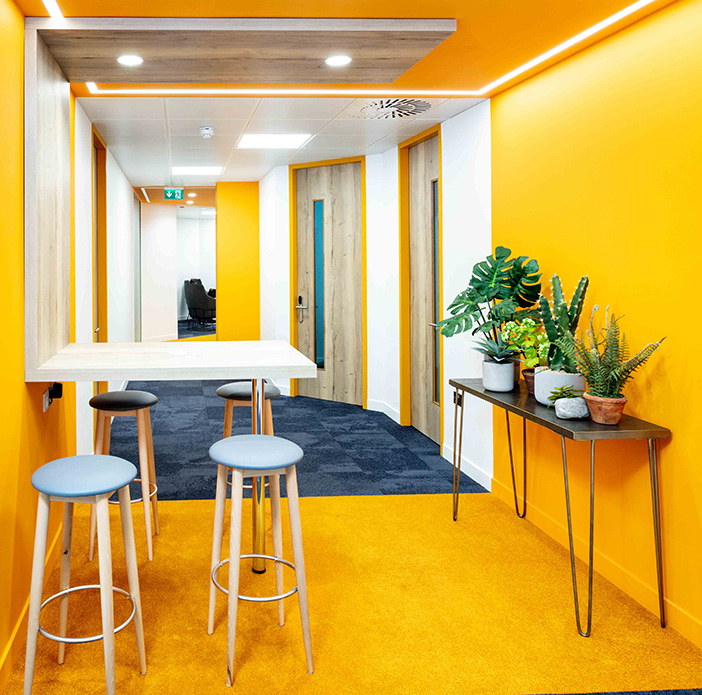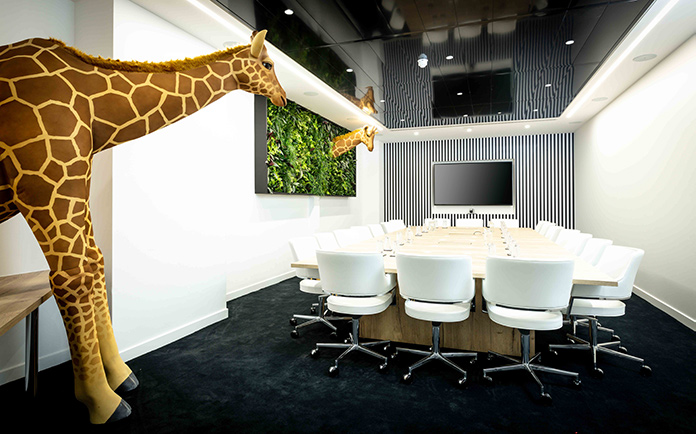Wish We Were There: Why Businesses And Workers Cannot Wait To Return To The Office
 By Giles Fuchs, CEO of Office Space in Town
By Giles Fuchs, CEO of Office Space in Town
Having begun the year with a third national lockdown, the Prime Minister quickly shifted to a more positive tone as he expressed his expectation that workers would flood back to the office once the Covid-19 crisis subsides. Addressing FTSE 250 leaders in January, Boris Johnson asserted his optimism about city-centre CRE, sparking hope for a recovery in this sector later this year.
Mr Johnson is right to keep faith in a widespread return to the office. Working from home in perpetuity is unsustainable for both people and businesses, with remote working during lockdown taking a serious toll on workers’ wellbeing and productivity levels. Moreover, advances in workspace provision will entice workers back to the office, where they can benefit from enhanced flexibility options and safety measures. Reports of its death are greatly exaggerated – the office is going nowhere.

Workers’ Wellbeing
A return to the office is the light at the end of the tunnel for the many workers whose mental health has been negatively affected by the need to work from home. While lockdown restrictions are absolutely necessary, so too are measures which maintain the wellbeing of increasingly isolated employees.
Lockdown has had a disastrous impact on our mental health, with a recent survey by OSiT reporting that 37% of us now struggle to switch off from work, undermining the notion that working from home helps improve work/life balance. Clearly, this is not always the case – many workers find that the structure of the office guards against the risk of burnout, which in turn increases vulnerability to serious mental health issues.
Workers’ experience has also worsened due to the lack of networking, mentoring, and development opportunities. Videoconferencing has proved a poor substitute for face-to-face interaction, and employers should know the risks, with 68% of workers who changed jobs in 2018 doing so due to a lack of learning opportunities. Enforcing home working beyond the pandemic will therefore engender fear of missing out among employees, making this strategy unsustainable for firms hoping to hold on to top talent.
Collaborative Productivity
Working from home has also been detrimental to productivity, which last year plummeted at a record-breaking rate of 21.1% in Q2. New offices, however, can facilitate the collaborative work which has been hit hardest by the emergency shift to remote working.
A return to the office will kickstart workers’ productivity, particularly when they are required to work together. Research following the first national lockdown found that individual productivity increased by 3.1% among those who returned to the office, while collaborative productivity increased by 6.1%. And while these figures are encouraging by themselves, it is no coincidence that the same group of workers also saw a 4.2% increase in personal wellbeing. Returning to the office would give us a social shot in the arm as well as an economic one.
Flexibility
Advocates of a permanent shift to working from home often argue that the office of old is outdated, and this is true – but businesses are unlikely to return to the office as they left it. Increasingly popular flexible workspace will attract tenants with more responsive lease terms and tailor-made services.
Offices are adapting to accommodate the needs of modern businesses, pivoting their offerings to provide the collaboration-friendly space which companies will favour. Workers will value this flexibility towards their preferred ways of working, which contrasts sharply with the makeshift home offices with which many have had to make to during lockdown. And with 63% of businesses planning to prioritise office specification in 2021, firms clearly envisage a future in flex space.

Safety
Managed properly, the office is among the safest places to return to post-pandemic, which will be crucial for helping businesses recover from Covid-19. Advances in office technology mean workspace is now easier to make Covid-compliant than supermarkets and restaurants, for example, with contactless interfaces, air quality monitors, and smart room-booking systems all set to play a significant role.
These adaptations are not just a short-term fix for Covid-19, as all help to place workers’ wellbeing at the centre of operations. Workspaces will become more health-focused in the wake of the pandemic, and new technologies provide a platform for the office to rise to this challenge in a way that working from home simply cannot.
Optimism about a widespread return to the office is far more than blind hope. Several important factors point emphatically in this direction, with office culture providing crucial support for employee wellbeing, as well as a vital vehicle for effective teamwork. Moreover, offices are equipped to provide the working environment which both people and businesses favour, with increasingly popular principles of flexibility and safety guiding developments in office specification. In short, the future of work is indeed in the office.


























































